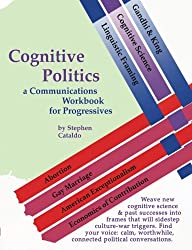Nicholas Kristof’s My Most Unpopular Idea: Be Nice to Trump Voters, like most articles about judgment and outrage around this election, comes down on one side. In this case, the “nice” side, awfully close to policing the feelings of other people. "Be nice" shoots down what should be a strawman, except that it is widespread, of shouting outrage at voters you don’t know, who don’t know you, over social media — and pretending that the volume is activism.
Echo This are usually straightforward suggestions of news to echo that may influence conservative or moderate voters.
Give some oxygen to the Republicans who are acting with integrity (or vengeance against Trump, that's fine too) on collusion with Russia. Their voices will influence potential Trump voters much more than Democrats saying the same things.
Share this: Carly Fiorina: 'Special prosecutor or an independent commission' needed for Russia investigation
Many studies are finding that the best way to frame an argument is to use their values. The studies have a simple format: they take an issue like climate change, and describe it to a conservative in liberal-sounding
What's the best way to frame political arguments? Some argue that we should tell stories that express our own values strongly — preferably with many voices repeating and reinforcing the same story; this is the approach in George Lakoff's Don't Think of an Elephant. At the opposite end of the spectrum, we hear advice as in Jonathan Haidt's The Righteous Mind (and Moral Foundations Theory) to spend more time listening to conservative opposition and coming to understand their values — more empathy, more compassion.
Here is a powerful video about the GOP wasting $14 billion under Trump's direction, and how much we could do with that money.
Here is an effort to integrate a lot of the ideas on being effective on social media into a short video and poster (later maybe a javascript tool) and "should you post it?" flowchart. This is just a first draft, would love love love to have co-creators. Also, feedback - please tell me what sucks, before I waste more time! What should be changed? How should this be formatted?
If you think this is worthwhile, please help me with it!
The Trump administration is battered. Most blows self-inflicted, a good bit more from the left. It is reeling. It doesn't no where to go.
This means that all that pressure is just leading to a wounded presidency. Perhaps it will lead to President Pence.
Cognitive politics is the effect of psychological factors on partisan identity. This is in contrast to economic, social or religious reasons. For example, someone could be a social-conservative, fiscal-liberal, or cognitive-conservative. It is a subset of the broader field of “political psychology,” but specifically related to partisan identity.
First in a series on disentangling messaging challenges on the left: Can we use framing and marketing techniques without losing connection to the truth?
"come up with at least one story for every data point."
--Tim Wise
There is a long-running struggle among Democrats: do we want politicians to stick to the truth or start marketing?
